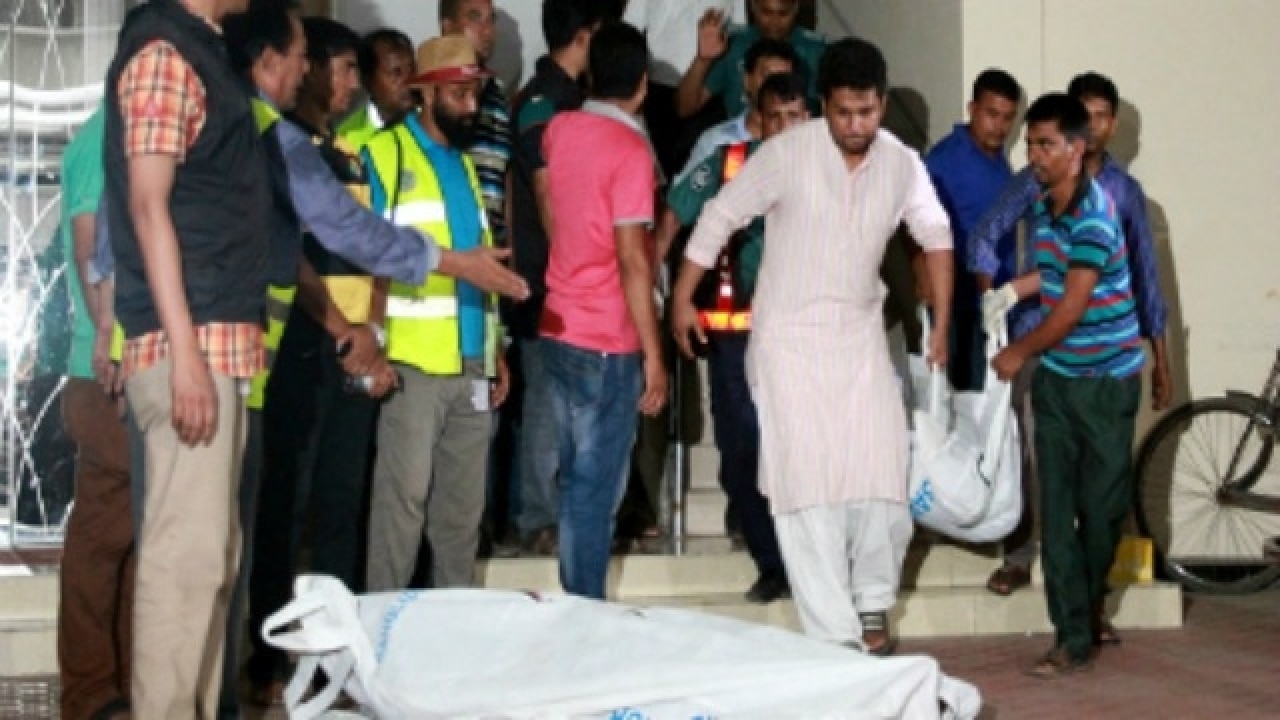
The spectre of terror that has haunted and hunted secular activists in Bangladesh has returned with a vengeance in April with the hacking to death of four people in separate incidents. The macabre similarity with the fatal stabbing attacks on bloggers, publishers and activists in 2015 will be lost on no one. Those killed this month include a popular university professor, a student activist and blogger who campaigned for secularism, and the editor of a gay rights magazine. The five men killed last year were secular bloggers, all of whom rose to prominence during the 2013 Shahbag protests demanding capital punishment for Bangladesh Jamaat-e-Islami leader Abdul Quader Molla and others convicted for war crimes by the International Crimes Tribunal. Many of these murdered bloggers, who professed atheist or secular views, were also named in a “hit list” of 84 bloggers put out by Islamist radicals in 2013.
The April attacks have come at a time when the Bangladesh government has faced criticism for failing to convict anyone yet for the 2015 attacks. It has aggressively prosecuted Jamaat members who took part in the 1971 genocide and enforced the ban on political parties with religious links after the Shahbag protests. It is possible that these attacks on secular bloggers and activists are a retaliation over the execution of Jamaat leaders. The inability of the government to protect today’s liberals even as it goes about punishing those who assassinated nationalists and liberals 45 years ago reveals the paradox in the state’s actions. There is also much confusion in Bangladesh about the role of religion in the State. In 2010, the original Bangladesh constitution that included secularism in its major tenets,was restored, but Islam was allowed to continue as the state religion. Nevertheless, these constitutional changes allowed progressive voices a platform.
It is quite clear that the intimidation of secular bloggers is aimed at silencing them and forcing them out of social, cultural and political spaces. Their attempt to spark a debate on the primacy of the country’s Bengali identity over the Islamic identity has also been sought to be set at nought. With the government and the police displaying a lackadaisical attitude towards bringing the guilty to book, many activists have applied for asylum in foreign countries or chosen to shut down their blogs and social media accounts. The passivity of the government to the attacks reveals its unease with tackling religious extremism at a political level. Responding to the attacks, Bangladesh Prime Minister Sheikh Hasina has attempted to strike a balance between free speech and tolerance. She has criticised atheist bloggers for hurting religious sentiments but rejected calls for a blasphemy law.
However, her calls for tolerance are misplaced.
The attacks are clearly being perpetrated by an extremist fringe with no allegiance to political processes, rule of law or the Constitution. The weaknesses of Bangladeshi intelligence and police forces are evident in the repeated attacks that have taken place. The Islamic State has claimed responsibility for the attack on Professor Rezaul Karim Siddique. The Al Qaeda has staked credit for hacking gay rights activist Xulhaz Mannan and for two of the killings last year. However, the Bangladesh government has linked Jamaatul Mujahideen to most of the attacks. Amid these claims, there are also allegations that many officials in the state establishment harbour sympathies for extremist ideologies. It has not helped that the legitimacy of the ruling Awami League has been questioned over a rash of executions, flawed trials in the war crimes cases, and the boycott of elections by the Bangladesh Nationalist Party. The Shahbag protests marked the finest moment for the country’s civil society in several decades. The retribution faced by these civilians since then is a disconcerting throwback to the country’s tragic past.